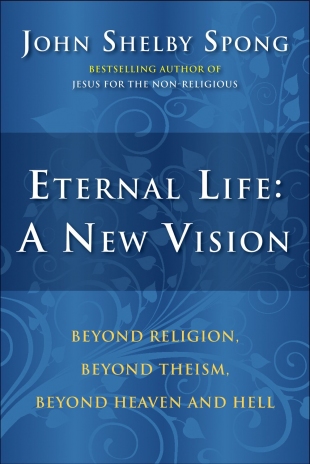John Shelby Spong was the Episcopal Bishop of Newark before his retirement in 2000. As a visiting lecturer at Harvard and at universities and churches throughout North America and the English-speaking world, he is one of the leading spokespersons for liberal Christianity. He has initiated landmark discussions of controversies within the church and has become an outspoken advocate for change. In this spiritual autobiography, which Spong calls his last book, he takes on the challenge of discerning the meaning of death and life after death.
Spong begins with a philosophical examination of two principles: life is accidental, and all life is deeply linked. He goes on to describe his "dance with death" through stories about a goldfish, his grandmother, a classmate, his dog, his father. In each case, death was hidden and even denied so that it took on a mysterious and haunting quality. Instead of providing hope, much of religion, writes Spong, promotes the fear of death: "Reward and punishment are religion's weapons of choice in this life, and they then become the ultimate force in our thoughts about the life to come."
The traditional ideas about God as a supernatural being who lives above the sky or the ideal of heaven as "a land flowing with milk and honey" have outlived their usefulness. But many vociferous Christian fundamentalists cling tenaciously to these beliefs. Spong quotes Professor Sarah Coakley at Harvard Divinity School: "The church is like a swimming pool. Most of the noise comes from the shallow end." The author is convinced that we must let go of the old religious paradigm and search within instead of looking outward for meaning or God. Secondly, Spong suggests that we "find the doorway into the eternal by going deeply into this life."
Spong sees himself as a lifelong learner animated by asking the right questions and as a spiritual seeker always open to new possibilities. He does not want to give up religion but to reclaim it:
"The task of religion is not to turn us into proper believers; it is to deepen the personal within us, to embrace the power of life, to expand our consciousness, in order that we might see things that eyes do not normally see. It is to seek a humanity that is not governed by the need for security, but is expressed in the ability to give ourselves away. It is to live not frightened by death, but rather called by the reality of death to go into our humanity so deeply and so passionately that even death is transcended. That is the call of the fully human one, the Jesus of the transformed consciousness."
